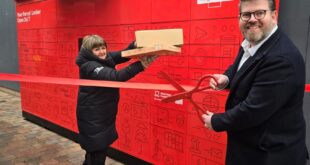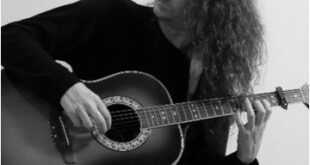Talking newspapers provide a vital source of news for many in the county and the West Shropshire Talking Newspaper (WSTN) has revealed that it has changed recording practice to make sure it still gets out to its listeners during the coronavirus crisis.
The volunteers producing the weekly 90-minute programme said they have had to make some drastic changes to the ways in which they they record and distribute.
See also:
Many of the presenters, readers and technical operators are within the vulnerable over-70s age group and have now abandoned their weekly meetings at studio recording sessions in favour of production at a small number of home hubs where skilled, self-isolating couples with appropriate recording hardware and software can work safely.
The first issue to be produced in this way has been published this week from the home of Shrewsbury couple, Alan and Susan Wilding.
Mr Wilding said: “As we’ve mentioned on the recording, it’s the first time in the 44 years we’ve been volunteering with the talking newspaper that we’ve had to work in this way but it’s the only way we could safely keep in touch with our listeners.
“We arranged a makeshift studio in our study, received a bundle of stories from this week’s editor Averil Newall and some pre-recorded items from contributors and ploughed our way through, just as we would have done with a slightly larger team in the real studio. It’s been a great team effort, involving editors gathering news stories and contributors making individual recordings.”
This week’s issue comprises six tracks of news stories which have appeared in the Shropshire Star during the past week, interspersed with five feature tracks including an exclusive interview with one of the WSTN’s editors who is currently stuck in Spain, which has been badly hit by a rapid spread of coronavirus.
Unprecedented
Mr Wilding said: “When I heard that our colleague Bill Curnow was trying to get back to Shropshire I emailed him to ask if he would do an interview with me. We managed to set up a Skype link and he has been able to tell WSTN listeners about the stringent restrictions imposed near Denia and Alicante on the Mediterranean coast of Spain. Except for emergencies, only one person is allowed in a car and anyone found walking in the street without allowable reason can be fined €600.”
Distribution has also changed. It normally involves a group of volunteers spending a few hours in the studio production room at the Fletcher Centre in Shrewsbury, unpacking listeners’ returned postal pouches, copying memory sticks and packing the latest issue for despatch via Royal Mail.
After this week that service is being suspended and listeners will only be able to hear the recordings via the webpage, app, telephone or Amazon’s Alexa.
Mr Wilding said: “We are all so glad that we invested in these methods of publication which have been running alongside our memory sticks for many years now but, suddenly, because of the unprecedented situation we all find ourselves in, they allow us to maintain publishing in a variety of safe, non-contact ways.”
The charity’s website is wstn.org.uk where a ‘click-to-listen’ button gives immediate access to the latest recording and no password is needed.
The West Shropshire Talking Newspaper is also available on an app called Talking Newspapers, a landline listening number, 01743 387 487 with a message recording facility for listeners and via Amazon’s Alexa skill which can be invoked by saying ‘Alexa, play my talking newspaper’.
The WSTN is also on facebook at, facebook.com/westshropstn
Source link



